🎗️Lonny's War Update- October 582, 2023 - May 10, 2025 🎗️
- Hamas-linked sources: Group met mediators this week but ‘no progress’ toward deal
A Hamas delegation held two meetings with Egyptian and Qatari mediators in Doha this week but they produced no breakthrough in the search for a Gaza truce, sources close to the Palestinian terror group say.
“Egyptian officials met twice with a high-level Hamas delegation led by [chief negotiator] Khalil al-Hayya [and] Qatari officials on Wednesday and Thursday in Doha,” one source tells AFP. A second source says the talks were “serious” but made “no concrete progress.”
Report: US heavily pressuring Israel to reach deal with Hamas; Witkoff asked for his criticism of Jerusalem to be leaked
US President Donald Trump’s administration is heavily pressuring Israel to reach a ceasefire-hostage deal with Hamas ahead of Trump’s visit to the Middle East, threatening that if Jerusalem doesn’t move along with the US toward such an agreement, Israel will be “left alone,” Haaretz reports, citing an unnamed source familiar with the details.
The outlet says the office of Strategic Affairs Minister Ron Dermer refused to comment.
The report adds, without citing a source, that Steve Witkoff is the anonymous senior US official cited by Channel 12 as criticizing Israel’s conduct in a meeting with families of hostages.
“If until today, the hostages paid the price for not ending the war, then today the price will be much heavier for Israel, and not only the hostages,” the official was quoted as saying, adding that Israel has failed to take advantage of the emerging US nuclear agreement with Saudi Arabia, which Trump is reportedly no longer conditioning on Riyadh normalizing ties with the Jewish state.
“If Israel doesn’t come to its senses, the price of missing out will be higher than ever before,” the official — reportedly Witkoff — warned.
Haaretz also reports that Witkoff’s criticism of Prime Minister Benjamin Netanyahu’s government was leaked to the media at Witkoff’s request.
Witkoff’s office is denying that the administration is pressuring Israel to reach a deal
Ex-hostage Eliya Cohen says he and others tried to escape on their 1st day in Gaza
Freed hostage Eliya Cohen says he and other abductees tried to escape on their first day in captivity in Gaza.
As Israel started striking the Strip and flattened a building where they were initially held, another warning of an impending bombing caused the captors to leave Cohen and several others alone, he tells Ynet.
“I looked at the hostages who were with me. I didn’t even know their names yet, and I told them: ‘Let’s escape’. You can call it an instinct, maybe a gut feeling. And we just started running in the street,” he recounts.
However, they were quickly stopped by a Gazan man who identified them as Israelis. The person who had been guarding them then showed up and argued with the other Gazan, before they decided to take the hostages to hide in a grocery store, before they were taken back to the ruins of the home and kept there for two months.
Then they were taken into underground tunnels, where ironically, Cohen felt safer since “the only consolation was knowing I wouldn’t die from a missile.”
- IDF says it hit over 60 terror targets in Gaza, struck Hamas targets in Morag Corridor
The IDF says it struck over 60 targets in the Gaza Strip over the past day, including cells of terror operatives, buildings used by terror groups, weapon depots and other infrastructure.
In addition, dozens of strikes were carried out overnight by the Israeli Air Force against Hamas targets in the Morag Corridor area of southern Gaza, in a joint operation with the 36th Division, the military says.
Elsewhere in Gaza, a drone strike yesterday killed a terror operative who emerged from a tunnel near where ground forces were operating, the army says, and another strike hit a building from which troops came under fire.
Online footage said to show Hamas shooting, beating Gazans accused of stealing food
Footage from the Gaza Strip circulating on social media shows armed men shooting and beating bound individuals.
Users claim that these are Hamas members targeting those suspected of stealing food.
A Palestinian website recently reported that Hamas has reestablished a unit that previously operated in Gaza to enforce order, in light of increasing theft due to the food shortage in the Strip Video
- IDF dismantles Hamas tunnel in Rafah after terrorists provide intel in interrogation.
IDF raided several buildings in the area, where they discovered weapons and military equipment. Two Hamas terrorists surrendered to IDF forces in Rafah before providing intelligence regarding the location of Hamas tunnels in Rafah during Shin Bet interrogations, the military said on Friday. Following the interrogation, the IDF destroyed a major underground infrastructure in Rafah.Troops discovered furnished living quarters, bathrooms, a small kitchen, blast-proof doors, and multiple exit shafts within the tunnel system. The IDF said that during the operation, the troops raided several buildings in the area, where they discovered weapons and military equipment.
All of the weapons were destroyed.
Israel Security Agency's interrogations
According to the IDF, the operation was conducted by the 188th Armored Brigade, where several Hamas operatives turned themselves in and were subsequently interrogated by the Israel Security Agency (ISA).
The information obtained during questioning led to the discovery of a substantial subterranean terrorist infrastructure in the Shabura neighborhood. The IDF confirmed that the underground facility, located approximately 25 meters below ground and stretching about one kilometer in length, functioned both as living quarters and an operational hub for Hamas activity in the area.
The Yahalom combat engineering unit, operating under the command of the 188th Armored Brigade, carried out the intelligence-guided operation to locate and dismantle the site.
The military described the findings inside the tunnels as part of ongoing efforts to disrupt Hamas's operational capabilities in southern Gaza. - UAE rejects Israeli request to fund Gaza aid plan, says it fails to address crisis
Emirati official says stance could change if initiative amended to meet dire needs, but initial refusal marks major blow to plan not yet fully off the ground
Palestinians struggle to obtain donated food at a community kitchen in Khan Younis, in the southern Gaza Strip, Friday, May 9, 2025. (AP Photo/Abdel Kareem Hana)The United Arab Emirates has rejected an Israeli request to bankroll a new initiative to resume the distribution of aid into Gaza after an over two-month embargo, a senior official familiar with the matter told The Times of Israel on Friday.
The rejection marks a major blow to the initiative, which hasn’t even fully gotten off the ground, as Israel hoped that Emirati support would help convince other countries and international organizations to follow suit.
Israeli officials have been deeply involved in the recent establishment of the Gaza Humanitarian Foundation (GHF), which they want to manage the resumption of aid into Gaza in a manner that prevents its diversion by Hamas.
But a GHF memo provided to potential donors states that the initiative will only feed about 60% of Gaza’s population in an unspecified initial phase. The UN and international organizations briefed on the plan issued a statement earlier this week saying they won’t cooperate with the initiative, saying it fails to sufficiently address the humanitarian crisis and “weaponizes” aid.
Maj. Gen. Ghassan Alian, who heads the Coordinator for Government Activities in the Territories (COGAT), and Strategic Affairs Minister Ron Dermer’s aide Moran Stav, visited the UAE Thursday to meet with Emirati Minister for International Cooperation Reem Al Hashimy, hoping to convince Abu Dhabi to back the plan, the senior official said, confirming reporting by the Walla news site.
Hashimy told the Israeli officials that the UAE would not be able to provide such financial support because the GHF initiative — as it currently stands — does not properly address the humanitarian crisis, the official said.
The official stressed that Abu Dhabi’s position could change if the initiative is adapted to properly meet the moment.
A Western diplomat told The Times of Israel earlier this week that GHF was planning to go public with the roll-out of its new initiative this week, but the lack of international support appears to be delaying the announcement.
Organizers sufficed with a press conference held Friday by US Ambassador to Israel Mike Huckabee, where he said the effort was already underway, but offered minimal details on how the initiative would work while calling on the international community to back the program.
In the meantime, the Trump administration is pressuring international humanitarian organizations to cooperate with the new plan, three sources familiar with the matter told The Times of Israel this week.
Amid this pushback from various groups, the Trump administration has indicated to these organizations — including the World Food Program — that their US funding could be slashed if they do not cooperate, a staffer at an international aid group, a senior Western diplomat and an Israeli official told The Times of Israel.
A GHF memo obtained by The Times of Israel on Thursday acknowledges that civilians in Gaza are currently “enduring extreme deprivation,” but says the “Secure Distribution Sites” (SDS) it will establish to distribute aid will initially only serve 1.2 million people, while the population in the Strip is about 2 million people.
The memo states that the four SDSs will have the “capacity to expand past 2 million,” but it doesn’t specify how long the initial phase will last.
Moreover, GHF acknowledges that it will take time for each of the four SDSs to even meet the initial goal of serving 300,000 individuals.
An Israeli official told The Times of Israel Wednesday that Israel is hoping that some countries will begin to take in Palestinians, which would help minimize the discrepancy between the aid initiative’s initial capacity and Gaza’s total population.
But no countries have volunteered to date, and while Israel touts the emigration option as “voluntary,” countries in the region are increasingly viewing it as forced, given that Israel’s military operations are ongoing and expected to significantly intensify shortly if a ceasefire and hostage deal is not reached by the end of US President Donald Trump’s trip to the region next week.
The Israeli official said that the IDF recognizes that Gazans are “nearing starvation,” given that aid has not entered the Strip since the collapse of a ceasefire with Hamas on March 1. Accordingly, the Israeli plan is to resume aid in the coming days or weeks.
Still, the goal of the new initiative with GHF is to ensure that aid is not diverted by Hamas, something Israel says it hasn’t succeeded in doing since the start of the war.
Critics have argued that the government’s refusal to stand up a viable Palestinian alternative to Hamas has allowed the terror group to remain a dominant force in Gaza, even if it has taken debilitating blows due to Israeli military activities.
The aid distribution hubs, or SDSs, will be established in a new humanitarian zone that Israel is creating in southern Gaza between the Philadelphi Corridor, along Gaza’s southern border with Egypt, and the newly established Morag Corridor that is located roughly five kilometers north. The area largely constitutes the southern Gaza city of Rafah. Those entering the zone will pass through army checkpoints, in what the IDF hopes will prevent Hamas fighters from reaching the area.
Aid will be distributed from the SDSs in boxes that will contain 50 1,750-calorie meals, hygiene kits and medical supplies, according to the memo. Five to six thousand vetted representatives will be allowed to travel by foot to the aid hubs once every week or two in order to pick up a roughly 40-pound (18-kilogram) box of food for their families, said officials briefed on the plan.
“To ensure the integrity and safety of aid delivery, GHF’s logistics subcontractors will utilize armored vehicles to transport supplies to and from SDS locations,” the memo states. The subcontractors will include American security firms, such as UG Solutions and Safe Reach Solutions, which helped secure the Netzarim Corridor earlier this year.
The IDF will not be stationed at or near the SDSs in order to “maintain the neutral and civilian-facing nature of operations,” the memo said. Instead, they will secure the perimeter of the humanitarian zone.
An international aid group staffer briefed on the plan told The Times of Israel earlier this week that it does not take into account the current reality in the Strip, where hungry Gazans desperate for food are likely to flood the aid hubs once they are opened.
The staffer also took issue with the mechanism’s plan to only facilitate the entry of 60 trucks into Gaza each day from one crossing, saying the amount does not come close to what will be needed to feed the already-malnourished Gazan population.
US special envoy to the Middle East Steve Witkoff briefed ambassadors of Security Council countries on the aid initiative on Wednesday in New York.
GHF is still working to put together its leadership, after it was established earlier this year, but Israeli and US officials have been in talks with former World Food Program executive director David Beasley about heading the foundation, a Western diplomat said.
The Axios news site cited a source close to Beasley who said the former WFP chief and Nobel laureate is negotiating the urgent reintroduction of aid in Gaza as a condition for him coming on board. link
- IAF struck around 60 terror sites across Gaza over past day, military says
Over the past day, the Israeli Air Force struck some 60 “terror targets” across the Gaza Strip, the military says.
Hamas authorities reported 23 killed and dozens more wounded during the previous 24 hours.
The strikes come as ground troops continue to operate in Gaza.
In the Strip’s north, the IDF says troops of the 252nd Division killed two armed terror operatives who approached forces; in the Morag Corridor area, the 36th Division struck a booby-trapped building where several operatives were; and in Rafah, Gaza Division forces destroyed Hamas infrastructure both above and below ground.
- IDF says fighting in Rafah now limited to just one neighborhood
The IDF says it is close to defeating all the remaining Palestinian terror operatives in southern Gaza’s Rafah, with fighting now only taking place in the Jenina neighborhood.
Troops of the Golani Brigade have been operating in Jenina in recent days. The IDF says the soldiers have destroyed dozens of “terror infrastructures,” located dozens of tunnel shafts, and killed dozens of operatives.
“Jenina is the last area where fighting against terrorists in the Rafah Brigade is taking place,” the military says.
Four IDF soldiers have been killed and several others have been wounded during fighting in the Jenina area in the past week.
- Hamas-run civil defense agency says 5 killed in Israeli strike on tent in Gaza City
Gaza’s Hamas-run civil defense agency says that five people were killed in an Israeli strike on a tent in Gaza City — all members of a single family, according to relatives.
The figures cannot be verified and do not differentiate between civilians and fighters.
“Three children, their mother and her husband were sleeping inside a tent and were bombed by an [Israeli] occupation aircraft,” family member Omar Abu al-Kass tells AFP.
The strikes came “without warning and without having done anything wrong,” Abu al-Kass adds, who says he was the children’s maternal grandfather.
AFP images from the scene showed mourners, some of them weeping, gathering alongside five white shrouds of different sizes.
“Five martyrs and wounded in an [Israeli] occupation airstrike on a tent in the Sabra neighbourhood” of Gaza City, civil defense spokesman Mahmoud Bassal tells AFP.
The Israeli army, which resumed its offensive in Gaza on March 18 after a two-month truce, did not immediately respond to requests for comment on the strike.
Israel has said it seeks to minimize civilian fatalities and stresses that Hamas uses Gaza’s civilians as human shields, fighting from civilian areas including homes, hospitals, schools, and mosques.
- 9 IDF soldiers lightly hurt by explosive in Gaza City overnight, army says
Nine IDF soldiers, including two senior officers, were lightly wounded by an explosive device in Gaza City’s Shejaiya neighborhood overnight, the military announces.
The troops of the Jerusalem Brigade were carrying out scans in Shejaiya when the blast went off.
Among the wounded are the commander of the Jerusalem Brigade’s 6310th Battalion and the deputy commander of the 252nd Division.
All of the forces were taken to a hospital in good condition, the army says.
🎗️Day 582 that 59 of our hostages in Hamas captivity
**There is nothing more important than getting them home! NOTHING!**
“I’ve never met them,But I miss them. I’ve never met them,but I think of them every second. I’ve never met them,but they are my family. BRING THEM HOME NOW!!!”
There is no victory until all of the hostages are home!אין נצחון עד שכל החטופים בבית
Red Alerts - Missile, Rocket, Drone (UAV - unmanned aerial vehicles), and Terror Attacks and Death Announcements
*4:10pm yesterday-Jerusalem and Gush Dan, central Israel areas- ballistic missiles from Yemen - reported that it was intercepted by our air defenses- Arrow long-range air defense system makes successful shoot-down after US THAAD fails for 2nd time this week
Gaza and the South
IDF says Palestinian who planned attack was shot and detained in West Bank yesterday
The IDF says troops shot and detained a Palestinian, who was allegedly planning to carry out a terror attack, during operations in the northern West Bank yesterday.
The suspect, who the IDF says was involved in building explosive devices, was shot by members of the Duvdevan commando unit in his home in the town of Tamun. His condition is not immediately known.
The army says the troops came under fire during the operation, though none were injured
Israeli commandos eliminate Lion’s Den terrorist, senior fugitive captured in Nablus
Border Police, Shin Bet and IDF troops carry out coordinated operation in West bank city, killing a terrorist affiliated with the Lion's Den terrorist cell and arresting a senior operative; Palestinian reports claim 41 people hurt during raid
An undercover Border Police unit operating in the West Bank, in coordination with Shin Bet and IDF operatives, eliminated a Palestinian terrorist and arrested a wanted individual during an operation in Nablus on Thursday.The terrorist, Rami al-Qahen, was affiliated with the Nablus-based Lion's Den terrorist group and was involved in planning and carrying out attacks, as well as assisting in arming other terrorists.In a joint statement, Israel Police, IDF and Shin Bet reported that undercover Border Police officers, along with IDF troops from the Samaria Brigade, carried out the operation in Nablus based on precise intelligence provided by Shin Bet and Military Intelligence. The mission targeted a wanted individual connected to the previously disrupted Lion's Den terrorist cell."The forces covertly located the terrorist, identified him as armed and posing a threat to the unit, and subsequently opened fire, resulting in his elimination," the statement read. A search of the terrorist’s possessions revealed a handgun, two magazines and cash suspected of being intended for terrorist activity. A tactical vest was also found in his vehicle.Another high-ranking wanted individual who was with the terrorist at the time was arrested and taken for further questioning by security authorities."During the operation, disturbances broke out, including gunfire and the throwing of explosive devices at the forces, posing a threat to them. The forces responded with gunfire, resulting in confirmed hits. There were no injuries to our forces," the statement added.Palestinian reports stated that 41 people were injured during the security forces' operation in Nablus.
The Netherlands in a dramatic call: to examine the future of the association agreement with Israel
The foreign minister of the Netherlands, one of Israel’s most important friends in the European Union, called to raise for discussion the future of the important agreement anchoring Brussels–Jerusalem relations • Veldkamp criticized Israel’s conduct of the war, and said it may be violating the agreement by deciding to prevent humanitarian aid to Gaza • The step constitutes a diplomatic blow to Israel, even if it is still far from implementation.The government of the Netherlands, which until now was considered one of Israel’s most loyal allies in the European Union, is calling for an urgent examination of the association agreement between the European Union and Israel, the basis for the free trade agreement between Jerusalem and Brussels (the center of the European Union). So said the Dutch foreign minister, Caspar Veldkamp, in an interview with the newspaper “The Guardian.”
Veldkamp described the Israeli prohibition on the supply of humanitarian aid to Gaza as “catastrophic,” “grim,” and a clear violation of international humanitarian law. He addressed a letter to the foreign minister of the European Union, Kaja Kallas, requesting an urgent examination of the agreement, and said that he believes Israel is currently violating the terms of the association agreement.
Veldkamp, who previously served as the Dutch ambassador to Israel, said that he expects the issue to be raised for discussion at an informal meeting of EU foreign ministers being held in Poland since the day before yesterday. The European Union is Israel’s largest trade partner. The Dutch government previously led moves to block discussions on suspending the association agreement, a lever that Ireland and Spain consistently pushed to activate.
In explaining his position, Veldkamp said: “You cannot starve the residents of the Gaza Strip. It is against international law, it is not morally right. It is dangerous, I do not think it is in Israel’s own interest.” The chances for a ceasefire appear “very slim,” according to him, which makes the situation “intolerable.”
Veldkamp said that the Dutch government, with a right-wing majority, will veto any extension of the EU’s action plan with Israel, the agreement that implements the association agreement which went into effect in the year 2000.
Clause 2 in the association agreement between the European Union and Israel states that the relations between the parties are based on respect for human rights and democratic principles. Human rights organizations have repeatedly pressured the EU to take a tougher stance, but no steps were taken to suspend the agreement at the EU–Israel meeting last February.
In his letter to Kallas, Veldkamp wrote that the aid distribution system proposed by Israel appears incompatible with “the principles of neutrality, impartiality, and independence.” All UN aid agencies rejected Israel’s new proposal for aid distribution and said it would not help improve the situation.
Veldkamp told The Guardian in London after a meeting with British foreign minister David Lammy that the Netherlands is “very concerned about the current conduct of the war, especially since the end of the ceasefire on March 18, and about the blocking of humanitarian aid.” Veldkamp expressed criticism of the priorities of Netanyahu and Israel and claimed that the most effective way to release hostages is a ceasefire.
“The criticism in Israel is growing against the prime minister who does not give sufficient priority to the release of the hostages, and he also declared that he does not give it top priority, but gives priority to fighting Hamas,” he said. “Now, Hamas must release the hostages as soon as possible. Hamas must lay down its weapons. Hamas cannot be part of the future government of the Gaza Strip,” he said. “I know there are also plans in Egypt, one of the mediators in the ceasefire talks, which wants to see the Hamas leadership leave to a third country.”
“I have no illusions that Hamas will ever implement international humanitarian law, but from a democracy like Israel, democracies fight differently, and Israel must comply with humanitarian law, and with the recent declarations of Israeli ministers, like Minister Smotrich whose aim is the complete destruction of the Gaza Strip – we can no longer ignore such declarations.”
“I say this as someone who feels close to Israel, and as a former ambassador, this is not a sustainable policy of Israel, and it is time to work for peace,” said Veldkamp. The fact that the Netherlands, an important friend of Israel, is expressing major criticism against Israel and is calling for a discussion on the future of the association agreement – is expected to have significant diplomatic implications for Israel.
Nevertheless, there is still a long way before the association agreement will indeed be raised for discussion or even be decided to suspend it, since as with any decision, also in this case the European Union must act by consensus, and make the decision only after approval of all 27 member states. In Israel, they estimate that there are still many countries, like Hungary, Poland, Czechia, Germany and others, that will prevent such a move. Despite this, it constitutes a harsh diplomatic blow to Israel. link
- Ex-PM Olmert: Gaza is Palestinian, not Israeli, and must be part of a Palestinian state
Gaza belongs to the Palestinians and must be part of a future Palestinian state, former prime minister Ehud Olmert says as he addresses the left-wing People’s Peace Summit at the International Convention Center in Jerusalem, with former Palestinian Authority foreign minister Nasser Al-Kidwa.
Olmert and Al-Kidwa discuss their peace framework, which they first unveiled last year, and are promoting together. The framework aims at reaching a two-state solution based on Israel’s pre-1967 borders with its neighbors, with land swaps.
While acknowledging that the concept is not popular in the current political climate, Olmert says that “only a two-state solution is a prescription for a dramatic change in the direction of our country and the whole region.”
He maintains that Israel achieved what it could militarily in Gaza “a long time ago” and that the war must stop immediately.
“The hostages should have been back already,” Olmert says.
“We must pull out from Gaza,” he adds. “Gaza is Palestinian and not Israeli. It needs to be part of a Palestinian state.”
Olmert calls for an interim security force to ensure that Hamas does not go back to power, and a new administration linked to the Palestinian Authority that can rebuild Gaza without any involvement of the terror group. According to the former premier, this can be achieved within the framework of a comprehensive normalization of ties for the whole region.
“In 1977, when the Likud [party] entered the government for the first time, nobody believed that Menachem Begin would make peace with Egypt and Israel would pull out of Sinai, but it happened,” Olmert says.
“We all understand that we need a new situation in Gaza,” Kidwa says.
“Nobody is going to do the job on our behalf; we need to do the job and people from abroad can help us,” he says, adding that everyone needs to do more for this. link
Macron: Peace would require hostages be freed, Hamas disarmed, PA reformed
French President Emmanuel Macron addresses the People’s Peace Summit in Jerusalem, organized by almost 60 grassroots organizations, in a video message.
“Your mobilization is a signal of hope in a time marked by pain, fear and misunderstanding that live in all of us since the terrorist attacks of October 7, 2023, and the tragedy that struck the Palestinian people in Gaza,” says Macron.
The French leader highlights that France lost the highest number of citizens after Israel in the Hamas onslaught and remembers the many peace activists killed by the terrorists.
Macron says that “France will always stand with builders of peace.”
He says that in this spirit, he will co-chair a conference for the two-state solution with Saudi Arabia in June. He says that the release of hostages, disarmament of Hamas and reform of the Palestinian Authority are “prerequisites” to achieve a long-lasting peace.
PA’s Abbas tells Jerusalem peace summit he rejects terror, backs 2-state solution
Palestinian Authority President Mahmoud Abbas addresses the People’s Peace Summit in Jerusalem in a video message.
“After all these years of conflict, war and suffering, many are wondering, is there still a chance to achieve peace based on the two-state solution?” Abbas asks. “I say with confidence, yes, peace can be achieved and all the people in the region can live in security and stability.”
Abbas says that in order to do so, “justice that gives everyone their rights” is needed.
He states he rejects terrorism in all forms, without explicitly mentioning Hamas or its onslaught of October 7, 2023.
Abbas also declares that he is in favor of releasing “all detainees and prisoners,” a possible reference to the Israeli hostages in Gaza, but also to the Palestinian security inmates detained in Israeli prisons.
He calls for a Palestinian state with East Jerusalem as its capital that can live side by side with the State of Israel, calling this the one way for peace.
Studio Friday poll: Majority in the public for a hostage deal and end of the war
Minister Smotrich claimed this week that he is “the majority of the people, and the majority does not want the return of the hostages in exchange for ending the war” – but the poll data reveals an opposite picture: only a quarter of Israelis support expanding the fighting • A clear majority of coalition and opposition supporters support a state commission of inquiry • And also: who is emerging as Netanyahu’s successor, and have Likud voters forgiven Sa’ar? • Studio Friday pollWhile the government is promoting the expansion of the war in Gaza, a clear majority of the Israeli public actually prefers a deal for the return of the hostages and the end of the fighting – this arises from the Studio Friday poll published last night (Friday). This stands in contrast to the resolute statement by Minister of Finance Smotrich, who believes that he is “the majority of the people, and the majority does not want the return of the hostages in exchange for ending the war.” At the same time, the answers to the question about the future of Likud paint a picture of a ruling party without a clear successor to Netanyahu – Nir Barkat barely leads with only 10% support, and the return of Gideon Sa’ar is met with much suspicion. The full data follows.
Majority of the public in favor of hostage deal
On the central question currently on the public agenda, the Israeli public expresses a clear position: 61% prefer a deal for the return of all the hostages and the end of the war, compared to only 25% who support expanding the fighting and conquering Gaza. 14% of respondents answered that they do not know which is preferable.Studio Friday poll – the government versus the public | Photo: Channel 12 News
In breakdown by voting and political outlook, significant gaps are revealed: 86% of opposition voters support a hostage deal, compared to only 37% of coalition voters, among whom 44% prefer expanding the war. A similar picture emerges in breakdown by self-definition: 86% of those identifying as center-left support a deal, compared to 43% of those identifying as right-wing.
Despite the deep political divide, there is broad agreement in the Israeli public according to the poll data on one central issue: the need for a state commission of inquiry into the events of October 7. 78% of the public support the establishment of such a commission – despite the government’s declared opposition to the move. Support crosses political camps: 96% of opposition voters and 62% of coalition voters support a commission of inquiry. Also in breakdown by self-definition, the picture is similar: 91% of those identifying as center-left and 71% of those identifying as right-wing demand a state inquiry into the failures that led to the disaster.
Studio Friday poll – the government versus the public | Photo: Channel 12 News
Who is really managing the war?
The poll also examined the public's perception of the motives for expanding the war in Gaza: 54% believe that the reasons are political, compared to 36% who believe that it is a matter of security-professional considerations. 10% answered that they do not know.Here too, deep gaps between political camps are revealed: 86% of opposition voters and 82% of those identifying as center-left see political motives in the move, compared to 22% of coalition voters and 35% of those identifying as right-wing.
On the question of who influences the decisions concerning expanding the war and negotiations over the hostages, the public is divided: 41% believe that Prime Minister Netanyahu is the main influential factor, while 40% attribute decisive influence to Ministers Smotrich and Ben Gvir.
Looking to the day after: who will succeed Netanyahu?
The poll provides a glimpse into the succession struggle forming within Likud, but the results point to the absence of an agreed-upon leader: Minister of Economy Nir Barkat leads with only 10% support, followed by Speaker of the Knesset Amir Ohana with 8%, former Minister of Defense Yoav Gallant and Minister of Justice Yariv Levin with 6% each. Current Minister of Defense Israel Katz has 5%.Foreign Minister Gideon Sa’ar, who recently announced his return to Likud, receives weak support of only 3%. Yuli Edelstein and Minister Avi Dichter receive 2% each, and Ministers Miri Regev and Eli Cohen 1% each.
Studio Friday poll among Likud voters (Photo: Channel 12 News)
Who should lead the Likud? | Photo: Channel 12 NewsThe surprising figure is the rate of voters who do not see a suitable candidate in any of the party’s leading figures: 24% answered “someone else” and 32% “do not know,” meaning 56% of Likud voters do not find a preferred candidate in the current list.
Have Likudniks forgiven Sa’ar?
The Israeli public reveals great skepticism toward the motives of Gideon Sa’ar in his return to Likud: 70% of all respondents believe that he returned to the party out of personal interest, compared to only 9% who believe he did so for ideological reasons.Even among Likud voters themselves, 62% believe that Sa’ar acted out of personal motives, and only 15% attribute the move to ideological motives. When asked about the main characteristic of Sa’ar’s political conduct, 64% of the entire public cited “opportunistic motives.” Only 8% cited “value-driven motives.”
On the question of whether Likud voters have forgiven Sa’ar for his past departure from the party, only 24% answered affirmatively, while 34% declared that they have not forgiven him. 42% answered that they do not know.
Studio Friday poll among Likud voters | Photo: Channel 12 News
Against draft exemption for Haredim, in favor of teachers’ protest
The poll also presents broad public support for two additional issues on the agenda. 69% of the public oppose a law that would exempt yeshiva students from military service, compared to 17% who support it. 14% answered that they do not know.Here too, opposition crosses political camps: 94% of opposition voters and 54% of coalition voters oppose the law. In breakdown by ideological identification, 78% of those identifying as center-left and 63% of those identifying as right-wing oppose the exemption.
At the same time, 63% of the public support the teachers’ protest against the cut in their salaries, compared to 24% who oppose. Again, support crosses camps: 77% of opposition voters and 48% of coalition voters support the teachers’ protest.
Here is a visual summary of the main poll findings, showing strong public support for a hostage deal and end to the war, broad backing for a state commission of inquiry, and significant opposition to draft exemptions and political motivations behind the war. link
Former envoy to US: Netanyahu ‘unwilling to pay the price’ for Saudi normalization
Former Israeli ambassador to the United States Mike Herzog, who served until January, accuses Prime Minister Benjamin Netanyahu of missing opportunities for a normalization deal with Saudi Arabia, including a few months ago.
After the news that US President Donald Trump is no longer conditioning a landmark nuclear pact with Riyadh on the latter recognizing the Jewish state, Herzog tells the Kan public broadcaster that “since Israel is planning to widen the operation in Gaza, normalization is getting farther away.”
“I think Israel should make [normalization] a very high priority. I don’t think Netanyahu doesn’t want it, but he probably isn’t willing to pay the price. I think it’s a missed opportunity,” he says, though he adds that the past opportunities were missed due to multiple factors.
“Trump was elected over the ‘America first’ stance and he is implementing it. This means, all the rest, including Israel, come after American interests,” Herzog says, adding that “there is a possibility that a hostage deal will reopen the chances for normalization with Saudi Arabia.”
The Region and the World
- Personal Stories
Returning to life, building the future: The initiative reshaping Israel’s periphery
Not with slogans, but with action—Homeward is working to bring residents back to their communities through investment in education, strengthening local resilience and developing regional excellence hubs for children and youth; 'We’re reinforcing the roots so communities can grow again,' says Sigal Moran, CEO of the initiative
Developing a regional excellence hub in education: Bringing education to us with help from Homeward
Education doesn’t start in the morning and end at noon
Orna Simchon, Northern District director at the Education Ministry, discusses the role of the public education system in the partnership: “The fund will support informal education and community resilience, working alongside government decisions and joint budgeting efforts. These partnerships focus primarily on out-of-school programming in local communities and supporting youth activities in the afternoons as requested by municipalities.”
Greenhouse: A program supporting educators, therapists and community leaders
Acronyms and Glossary
ICC - International Criminal Court in the Hague
IJC - International Court of Justice in the Hague
MDA - Magen David Adom - Israel Ambulance Corp
PA - Palestinian Authority - President Mahmud Abbas, aka Abu Mazen
PMO- Prime Minister's Office
UAV - Unmanned Aerial vehicle, Drone. Could be used for surveillance and reconnaissance, or be weaponized with missiles or contain explosives for 'suicide' explosion mission
Join my Whatsapp update group https://chat.whatsapp.com/IQ3OtwE6ydxBeBAxWNziB0
Twitter - @LonnyB58 Bluesky - @lonny-b.bsky.social
Twitter - @LonnyB58





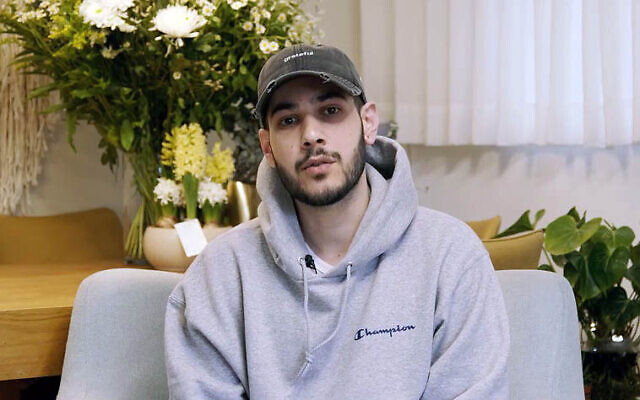
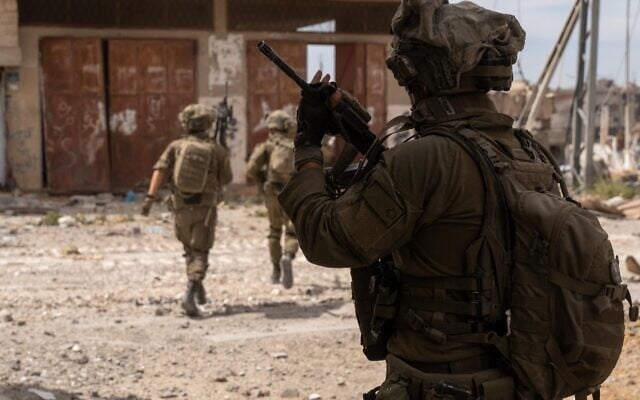

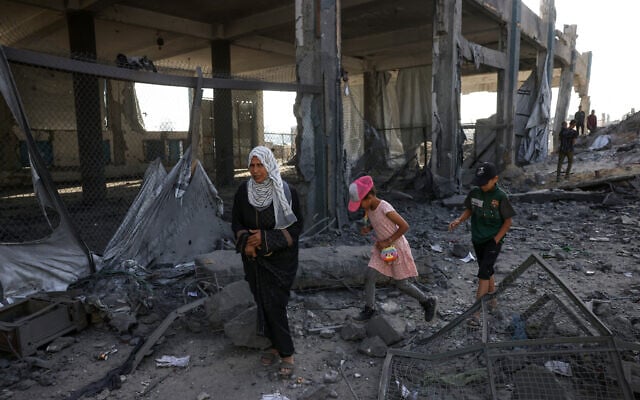
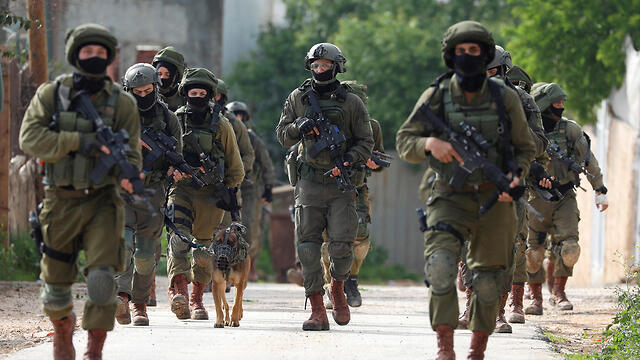

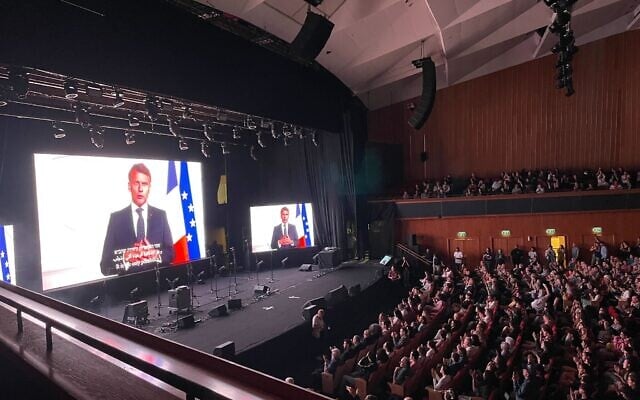
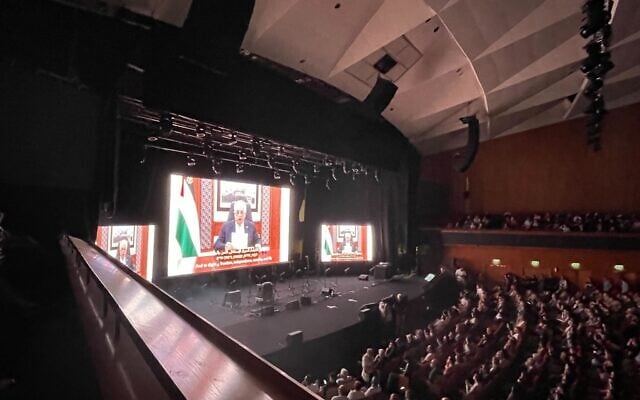








Comments
Post a Comment